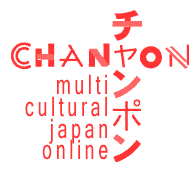2003年04月30日 水曜日
Looking for Spiritual Answers
by Jane Pinckard
Religion
My parents were spiritual agnostics. From my mother's side, I got a dash of Shinto and daily morning Buddhist prayers lead by a devout grandfather. I remember with nostalgic pleasure the scent of pine-colored incense, the muted tone of the bell, and the chant "Nam myo horen gekyo". My father was raised in a practical secularized Protestant tradition, but he studied all religions with equal respect and irreverence. I think he was attracted to the aesthetics of Catholicism, the mysticism of Judaism, and the poetry of Islam.
In 1989, my father died, a confirmed atheist. No last rites for him. My mother floundered spiritually for a while, and then discovered a community of Japanese Baptists in El Cerrito and Berkeley. I went to her baptismal ceremony in 1991. That was also the day our house burned down in the Oakland Hills fire.
My mother bought a new house, and became increasingly involved in the church. She went on missions to India, Japan, Sri Lanka (where she told me she could hear gunfire from her hotel room). In 1995 she moved back to Japan, to a remote rural area in Gifu prefecture. "I wanted to go where I would be useful, where I could minister to the people," she said. She told Justin, when he went to visit her last year, that several Christians had been martyred in Gifu.
This morning I read about another religiously charged event in Gifu. A group of people dressed in white are blocking the road, draping the trees and guardrails in white cloth, which they believe will protect them from harmful electromagnetic waves. They call themselves Panaweb - a cursory search turns up nothing relevant. The article reveals a very poor understanding of these people and their beliefs - the reporter characterizes them as "a mixture of New Age and Christian thought."
Recently my mother moved back to California, and joined another church known as the Hope Fellowship Church. They get up every morning at four and pray for two hours, "in whatever language comes naturally," she says. She says she has never felt this way before. "We just pray and pray." To me, skeptic that I am, it sounds like the outlines of a cult. The head of the church apparently reads prophecies for the members. Isn't that a bit like fortune-telling? I ask. My mother shakes her head. "No. It's prophecy. It's the word of God." She believes that her prophecy is to minister to Christians in Japan. "The reason Christianity never really took root in Japan is because it was often brought by foreigners," she says. "I think if we Japanese bring it, it will be different."
I have often wondered about being Christian in Japan. Shusaku Endo, the author of Silence, described himself as a "Kirishitan" - a believer in Christ yet subtly differentiated from Christians in the West: a native Japanese convert. "[A]s a Japanese," he said in a speech to Sohpia University in 1992, "I have always felt a sense of incompatibility with westernized Christianity--not so much Christianity itself as that form of Christianity which has hardened under western influence."
Japanese spirituality has historically been somewhat receptive to foreign overtures. Buddhism was introduced in the sixth century, spread, and mingled with Shinto practices. Within Japanese Buddhism there are dozens, if not hundreds, of distinct sects, some with more "native" aspects than others. The Shinto foundation provides a rather flexible, yet resilient, basis for spirituality. Shinto as it's practiced by most Japanese is highly resistant to foreign beliefs, and also receptive at the same time. It's non-exclusive. Many modern Japanese, even if they are Buddhist or Christian or agnostic, still perform some rituals derived from Shinto. This is not to say that Shinto has never provided justification for terrible purges of Christians and Buddhists and other groups, for of course it has. And lest I over-romanticize Shinto, it is good to remember that the worst of Imperial Japan was founded on an interpretation of Shinto purity and translated into military rule. But then again, Shinto is also the inspiration for the forest sprites in Miyazaki's Princess Mononoke.
For me, the pagan holds a simple sort of charm. The idea that spirits exist in the trees and the rocks and the rivers and the winds attracts me. Although as a rebellious teenager I practiced with no great knowledge some rituals that might be considered witchy (including a blood-oath ritual sworn between four soul-sisters in seventh grade), I accept that I do not have all the spiritual answers, and that much lies in the ether beyond my ability to see or explain. When I was little, I asked my mother what God was. She replied that God was something different inside everyone. And if we each have a god guiding our decisions, are we not all a bunch of pagans? Some day I shall make a pilgrimage to Mount Fuji, as my father did thirty years ago when he was a young American man wandering around Japan. One day soon I will visit the Hope Fellowship Church with my mother and learn to pray. And today I will sit by the creek outside my house and listen to the sound of melted spring snow tripping over the stones.
Posted by Jane Pinckard at 2003年04月30日 01:10

Comments
i am very happy to see your sit.
i whis to be your member as much as
pursible.